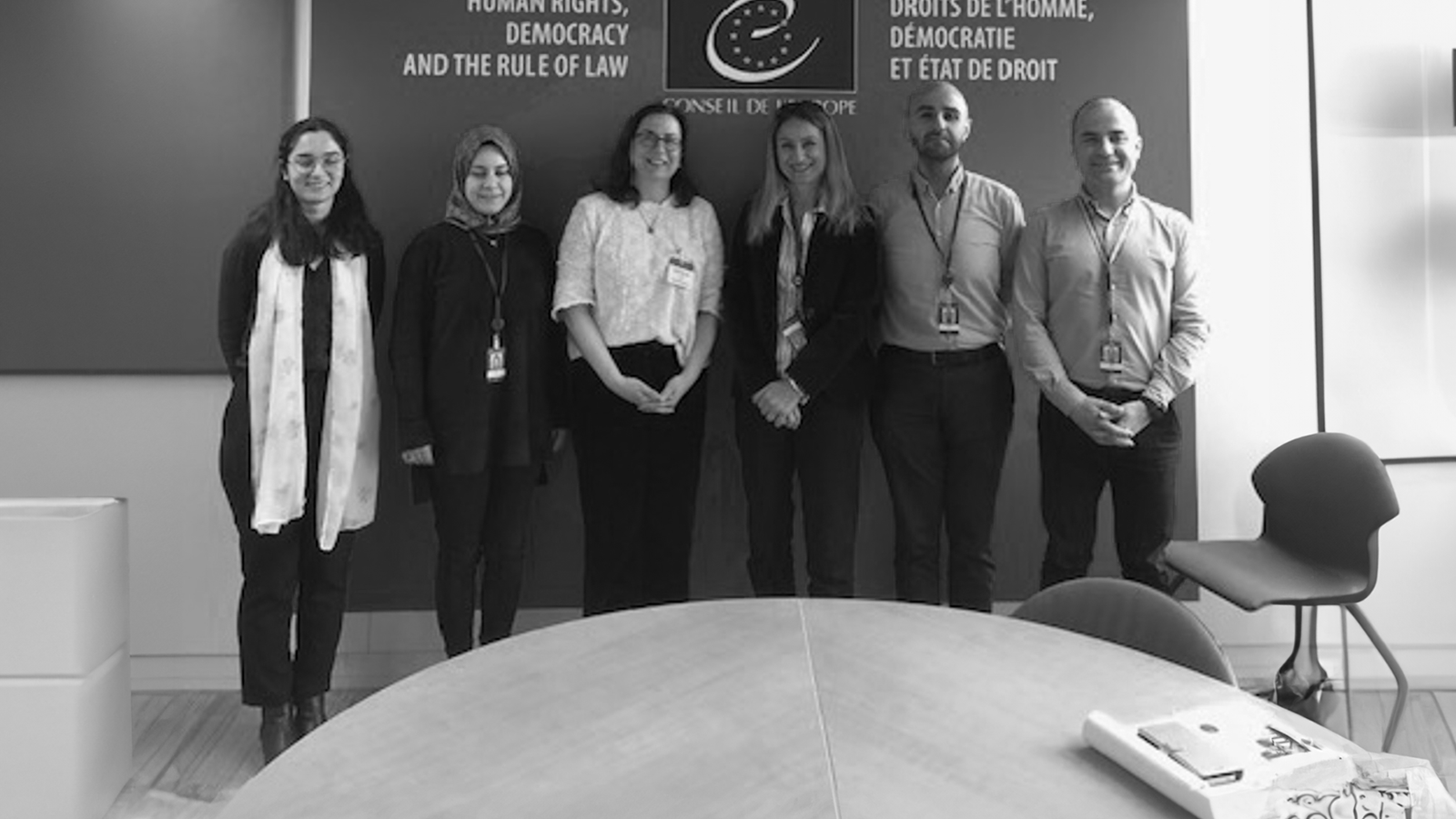“People who work on gender equality and freedom of religion or belief rarely come together. We are trying to bridge the gap between them,” says Mine Yildirim, founder of the Freedom of Belief Initiative (FoBI), the only organisation conducting monitoring and advocacy activities on freedom of belief for all in Turkey. Mine is one of the country’s leading experts on the topic.
In 2011, while doing field work for her PhD on the collective dimension of freedom of religion or belief in public and international law, Mine Yildirim noticed that there were no human rights-based initiatives promoting freedom of religion and belief for all in Turkey, a topic that she believes is key for the country’s democratisation process.
“At the time, the only sporadic work on the topic was conducted by certain religious communities, largely focused on their own issues,” she recalls, “but there was no unified, systematic approach that would engage with human rights mechanisms.”
Wanting to make a difference, she started a blog monitoring legislative and administrative changes on freedom of religion or belief. Today, the blog is a full-fledged research and advocacy project under the Norwegian Helsinki Committee.
FoBI conducts systematic monitoring of freedom of religion or belief and other interconnected rights, such as freedom of association, nondiscrimination, and gender equality. FoBI’s two-person team – Mine and project and communications specialist Funda Tekin - monitors the media, conducts interviews, and follows court judgements, legislative developments, and policy initiatives, assessing their compatibility with international human rights law. They also monitor the implementation of European Court of Human Rights rulings.
Mine explains that FoBI devotes considerable time and resources to monitoring hate crimes and building knowledge and resources on the topic, producing detailed data visualisations and video explainers that have earned the praise of many human rights organisations, who use them as educational and awareness-raising resources.
She notes that FoBI focuses on niche, under-researched topics, including the gender dimension of freedom of belief.
FoBI’s activities on this topic have gained the attention of many religious women: “These women are under pressure from both the secular and the religious community. Our work has given them a new avenue to bridge freedom of religion or belief and gender equality, two topics they are passionate about.”
FoBI’s findings and reports are then used in advocacy work targeted at decision-makers and the wider society.
Every year, the FoBI team visits the Parliament to share findings and policy recommendations with MPs, and FoBI regularly meets the Equality and Human Rights Institution and the Ombudsman Institution to share findings - an increasingly difficult task since the government is limiting opportunities to engage with civil society.
FoBI also conducts advocacy campaigns for the wider public. Their research, made public on their website and social media channels, has been used by lawyers in support of court arguments, as a source by journalists and international organisations, and as an advocacy tool by minority rights groups and other civil society organisations.
One of FoBI’s biggest campaigns to date focused on the effect that compulsory religion classes in school have on children. Students from minority religious backgrounds or from atheist or agnostic families experience disrespect, stigmatisation, and are pressured to take the classes, despite two European Court of Human Rights rulings stating that the students and their families’ religious convictions should be respected.
Mine relates that FoBI expends considerable energy engaging with other similarly minded organisations and with religious or belief communities.
“We’re a small organisation and we would not be able to reach a massive amount of people, so we focus on providing expertise, doing targeted outreach, and participating in civil society networks,” explains Mine.
”Many religious communities are not open to taking part in formal networks. We try to be sensitive to their preferences, engaging with them for our reports and holding roundtables bringing together academic and religious actors.
The local dimension is an important aspect of FoBI’s monitoring and advocacy work, as they see working with local municipalities as potentially an important tool to build a culture where freedom of religion or belief is fostered and encouraged: “It can be easier to find an opening in local administrations, less so with the central government.”
Their work has explored the impact of local authorities on freedom of religion or belief due to their significant roles in local rules regarding cemeteries, funerals, and fostering religious pluralism. The team is now working on a handbook on fostering religious pluralism in cities, to make FoBI’s findings easily accessible to local authorities.
For Mine, it is still early to determine if last March’s local election will bring about change. This election saw wins for the more secular opposition’s Republican People's Party and the pro-Kurdish People's Equality and Democracy Party. She is hopeful that there might be some improvement when it comes to the protection of freedom of religion or belief for all.
“During this electoral cycle, the opposition has implemented policies facilitating freedom of religion or belief and religious pluralism in Istanbul, where they are in office. We hope these positive developments will be replicated elsewhere. There is potential for change, and we are ready to offer our expertise and resources to local administrations.”
This article reflects the views of the grantees featured and does not necessarily represent the official opinion of the EED.
